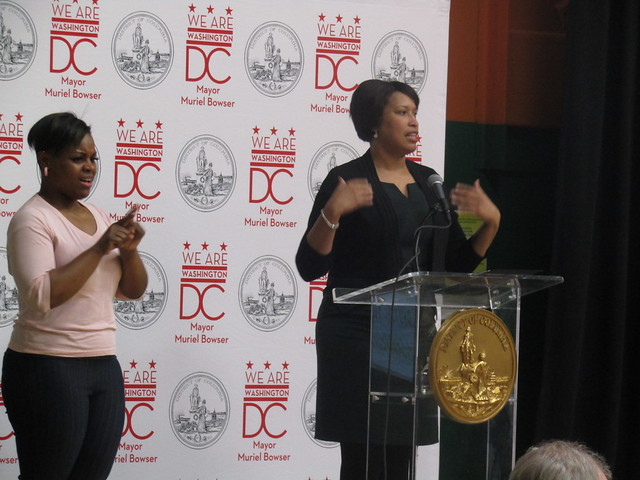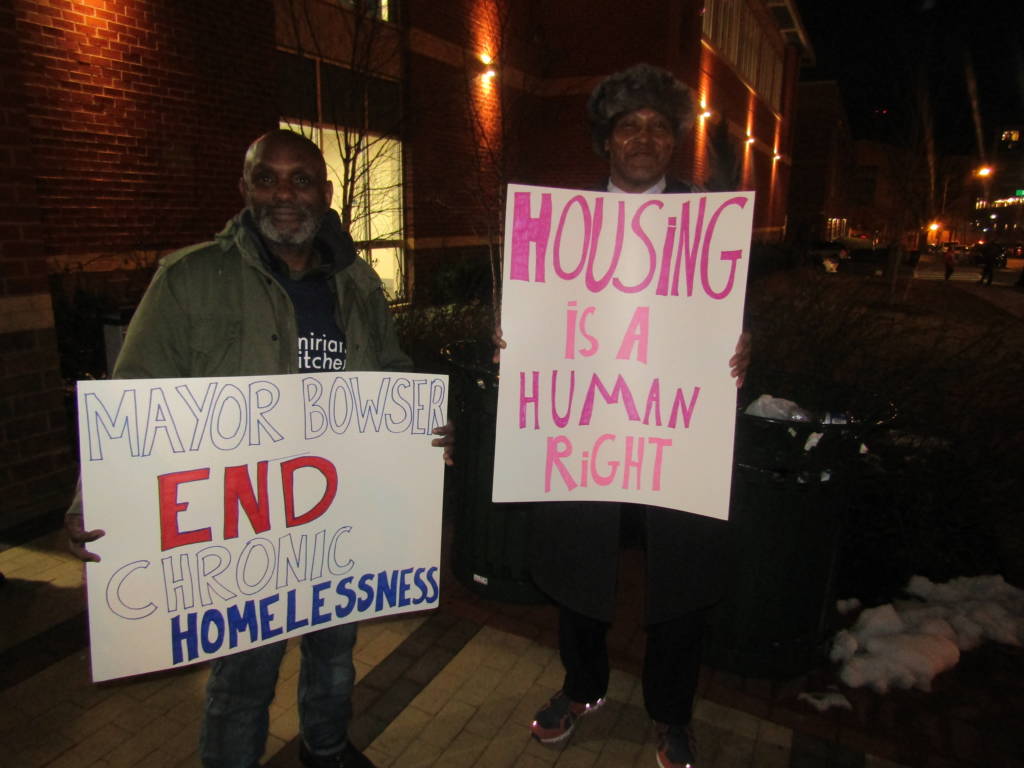This opinion was first published by The D.C. Line on March 1.
Every February since taking office in 2015, Mayor Muriel Bowser has held a series of public events with the stated purpose of allowing D.C. residents to give meaningful input into the District’s budget. Billed as “Budget Engagement Forums,” the mayor’s annual trio of public budget presentations was anything but “engaging” this year.
As a longtime D.C. resident, organizer and advocate, I see these forums as a huge missed opportunity for valuable and substantive conversations about our priorities as a city and how we allocate our resources. Every year, hundreds of D.C. residents show up, filing in to sit at tables with neighbors and fellow Washingtonians, with a broad and diverse cross-section of the city represented at each forum. Some are there to discuss funding for their issues or concerns, others to learn more about the budget process.
These forums could accomplish all of these goals — receiving and curating public input, educating residents, and giving everyday people a chance to speak their truth to power. Instead, these events have allowed fewer and fewer opportunities for real public input and more for scripted pitches from high-ranking government officials, framing our budget as a zero-sum game of scarcity amid competing priorities.
I attended the mayor’s Feb. 21 budget forum at the Arthur Capper Community Center — the others took place in the ensuing days at Deanwood Recreation Center and Roosevelt High School — both as a concerned Ward 6 resident and as organizing director for the D.C. Working Families Party. Along with dozens of others, I was there to ask the mayor to include $30 million in her budget for the Birth-to-Three for All legislation that passed the D.C. Council unanimously last year. Unaffordable child care and racial and economic inequities in maternal and child health are among the biggest challenges we face as a city, and funding for this legislation would help address these problems.

I’ve had my critiques of these forums in the past, but I was shocked that the format this year scrapped a long-standing exercise allowing each individual and every table of residents, as a group, to draft their own budget based on information about current funding levels for different priorities. While this exercise was flawed — it didn’t allow for raising additional revenue and tried to pigeonhole the budget into a handful of preordained categories — it encouraged robust conversation about priorities and funding levels.
This time, that exercise was replaced with an invitation to vote live online in multiple-choice polls with packaged and prescribed answers. More than an hour — the majority of the forum’s substantive time — was spent on speeches by the mayor and her deputies, more focused on touting accomplishments from the past year than sharing a broad vision for how to tackle the biggest problems we face as a city. The budget was repeatedly framed as an overwhelmingly complex process, where new programs or legislation could only be funded at the expense of others. The core message was that the budget is too complicated for you regular people to understand, and whatever you’re here to advocate for will take away from something else.
Near the end, with about 30 minutes left, attendees were finally encouraged to share their thoughts on the budget with others at their table, prompted by the question: “What would you cut to pay for your priority?” Gone were the handouts providing specific details on how much funding went to various priorities, replaced with a brief PowerPoint presentation. Again, the idea of raising revenue by taxing the biggest businesses and wealthiest Washingtonians was off the table unless an attendee initiated that topic. At the very end, representatives from a handful of tables were allowed to report back to the whole room on their discussion.
This approach underestimates the ingenuity and intelligence of D.C. residents. You don’t have to be a budget wonk to understand that the way we spend our money should reflect our values and our priorities. D.C. residents deserve real, meaningful input into our budget process, and not just three cursory events a month before the mayor unveils her proposal. The mayor herself pointed out that the budget process began last fall when she asked her agency heads for estimates of their funding requirements for the next fiscal year. This means the government’s most visible public engagement comes about five months into a six-month-long budget formulation process.
I sincerely hope that in future years, the mayor makes an effort to give people more insight and input earlier in the process. I also hope that the mayor and her staff took note of the numerous groups that came out to make their voices heard — including dozens of residents supporting Birth-to-Three for All, the Fair Budget Coalition platform, expanded homelessness services, increased funding for legal aid for undocumented immigrants, and more — and support those important priorities in this year’s budget proposal.
Ericka Taylor is the organizing director of D.C. Working Families Party and a Ward 6 resident. She has worked in D.C. for two decades in organizing and advocacy, including as the former executive director of the Fair Budget Coalition.







